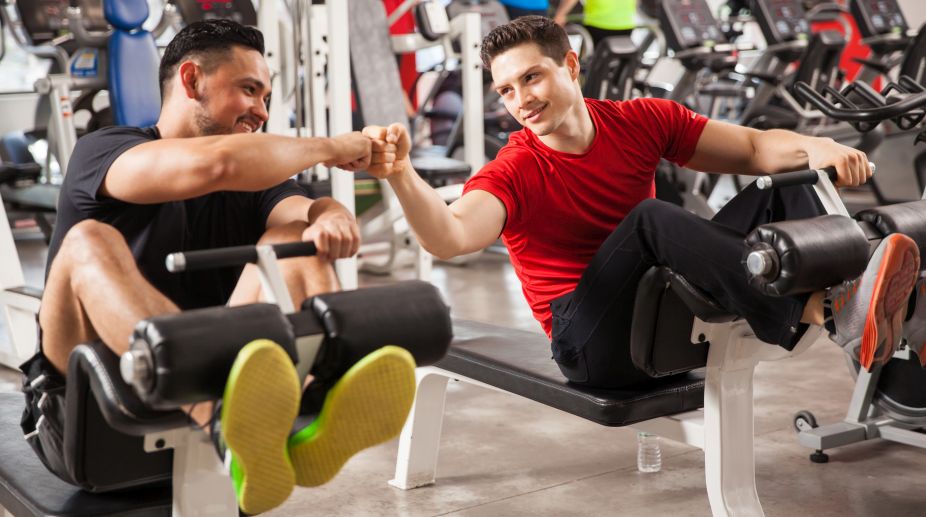PM Modi showed keen interest in our model of rural development: Zoho’s Sridhar Vembu
PM Modi addressed a massive election rally in Tirunelveli's Ambasamudram grounds on Monday.

PHOTO: Getty Images
We might like to think we’re brilliantly unique, but we share the majority of our DNA make-up with all the other humans on the planet, with slight genetic variations making us who we are. Now, this information is being harnessed to help both athletes and the average Joe achieve their fitness potential.
This technology is the next step in the personalised fitness dominated by Fitbits and other tracking devices. It is science that Olympic athletes including Greg Rutherford and premier-league football teams are said to swear by.
Most recently, health firm DNA Fit rolled out its Elevate software, which enables clients to access workouts built around their genetic coding on their smartphones and other devices. To fetch this data, clients swab the inside of their mouths, and post off the cotton bud to the DNA Fit lab. There, technicians test for sensitivity to fats, lactose, gluten, carbohydrates, salt, alcohol and caffeine, among others things. A week or so later, a 25-page diet report and 15-page fitness rundown is sent back.
Advertisement
As well as determining whether a person is particularly sensitive and prone to putting on weight after eating certain food groups, DNA markers can pinpoint if a person is more predisposed to training for endurance — such as cycling or running — or power, including weight-lifting, high-intensity resistance training and sprinting. Even details such as the number of reps per exercise and recovery times are said to be lurking in our DNA. Trainers use this data to tailor efficient workouts and diets to help their clients maximise their health.
“Thanks to the lowering cost of genotyping analysis, research studies are now possible at a fraction of the cost, this helps the science move forward,” DNA Fit founder, Avi Lasarow told The Independent. This is how the team informs the training plans with Elevate, he explains.
Nicholas Jones, the head of firm DNA Sports Performance, has worked with the England rugby and hockey teams and carried out studies into using genetic markers to enhance fitness at Lancashire University. In a study on rowers published in the Biology of Sport journal, Jones pinpointed whether participants fell into the endurance or power bracket.
“If you match your genotype with your training the likelihood of significant improvement was 21 times more in the power test and 28.5 times more in endurance, test compared with people who were mismatched,” he told The Independent.
“Let’s flip that to yourself who’s just at the gym after Christmas and you want to get fit. You go to the gym and you don’t see improvements. You don’t get more strong or powerful, you get disgruntled and leave after four weeks. Whereas if you had done the genetic test you’d be much more likely to see the results you’re after quicker. You’re more likely to carry on in the gym as a result,” he argues.
However, sceptics aren’t so convinced. Focusing on 45 of the 10 million gene variants in the human body, as such tests do, gives only a small glimpse into our genetic profiles.
“If you want to know how good someone is likely to be at sport, you’ll probably get a better idea by looking at them and their body shape,” Mark Thomas, professor of evolutionary genetics at University College London told The Telegraph.
Maintaining a healthy diet is also key to hitting peak levels of performance. “You have to think about environmental factors,” says Jones. “Take Team GB runner Mo Farah and his twin brother. Side by side you can see photos of them. His brother is quite overweight and isn’t a world-class athlete. His environment has identical genes to Mo but his environment hasn’t allowed him to use the potential of the genes.”
So, genetic test or no, at the end of the day none of us will become an Adonis without putting the hard work in at the gym.
The Independent
Advertisement